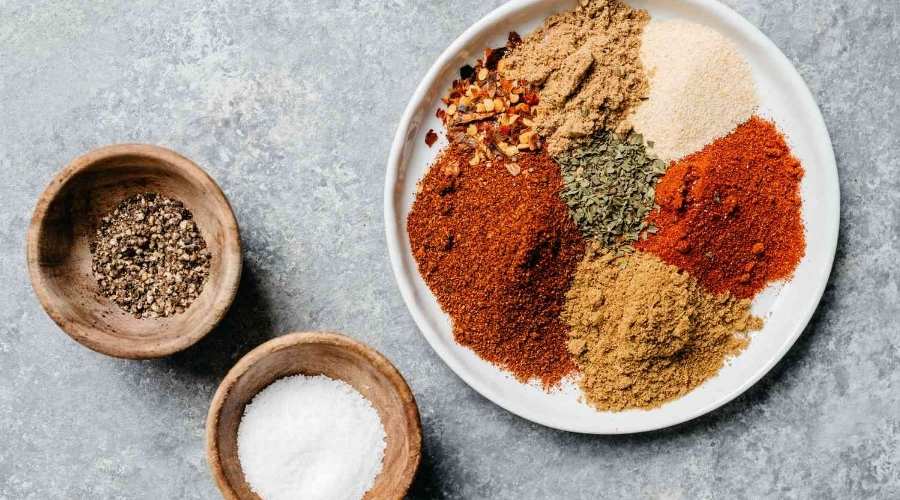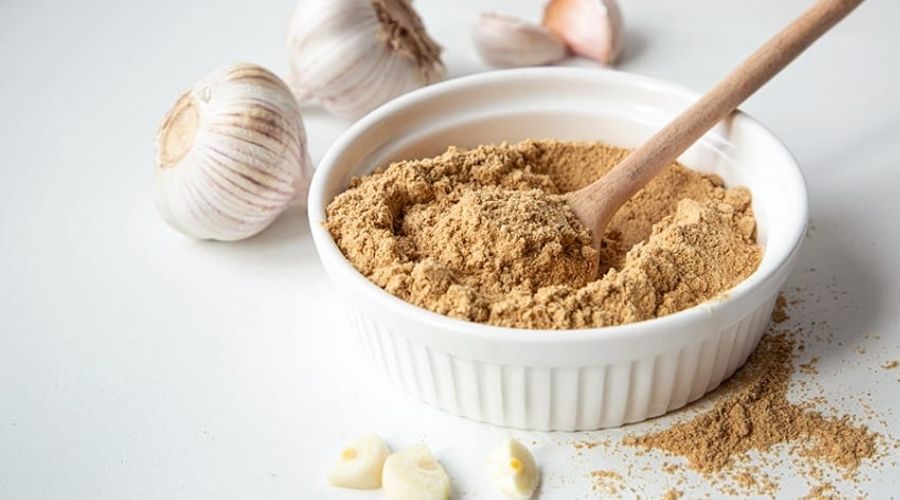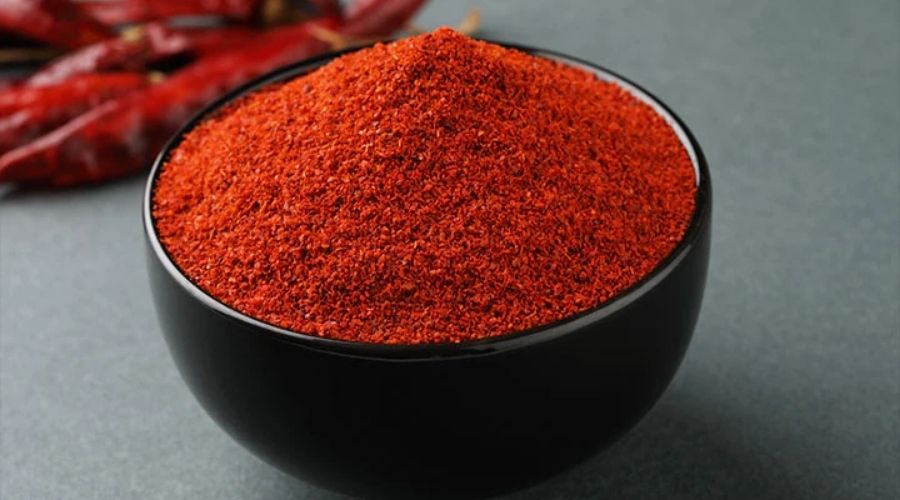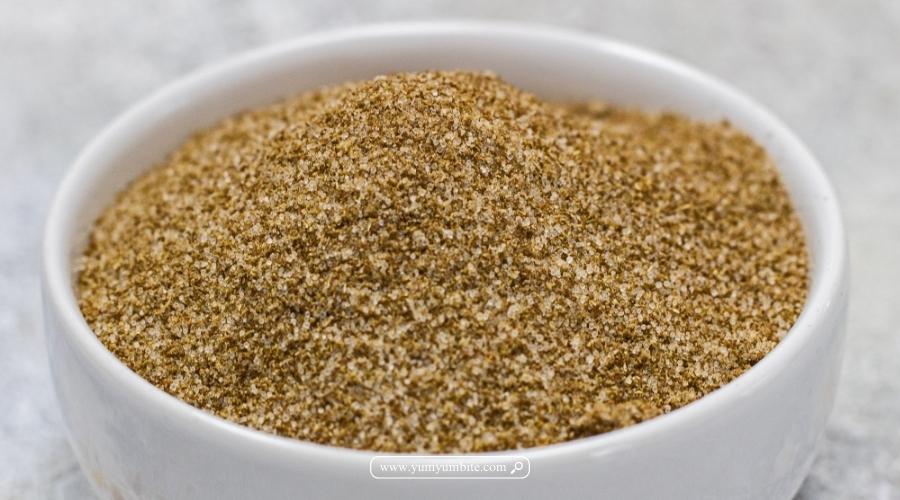In today’s health-conscious world, many people are looking for ways to reduce their sodium intake without sacrificing flavor in their meals. Benson Salt, known for its low sodium content, is a popular choice, but it’s not always readily available.
Fortunately, there are numerous alternatives that can serve as effective substitutes, each bringing its own unique flavor profile and benefits.
In this blog article, we’ll explore 12+ Benson Salt substitutes that can enhance your cooking while helping you manage your sodium levels.
Whether you’re looking for a direct replacement or a creative twist on your favorite recipes, these substitutes will ensure your dishes remain flavorful and satisfying.
12+ Creative Benson Salt Substitutes to Spice Up Your Recipes
Finding the right Benson Salt substitute can make a significant difference in your cooking, especially if you’re aiming to reduce sodium intake or simply need a change.
From potassium chloride to aromatic herb blends and umami-rich options like nutritional yeast, each alternative offers distinct advantages and flavors.
By experimenting with these substitutes, you can discover new tastes and textures while maintaining the health benefits you seek.
Potassium Chloride
Potassium chloride is one of the most common substitutes for Benson Salt, as it mimics the salty flavor without adding sodium.
This makes it an excellent option for those looking to reduce their sodium intake while still enjoying a similar taste.
Potassium chloride works well in most recipes where salt is needed, such as soups, stews, and sauces.
However, caution should be taken if you have kidney problems or are on a potassium-restricted diet, as too much potassium can be harmful. It’s best suited for those looking for a direct, sodium-free replacement in savory dishes.
Herb Blends

Herb blends are another fantastic substitute for Benson Salt, especially for those seeking flavor without sodium.
Using dried or fresh herbs like rosemary, thyme, garlic, and basil can add depth and complexity to dishes while reducing the need for added salt.
Herb blends are particularly great for seasoning meats, vegetables, or pasta.
The caution here is that herb blends won’t provide the exact salty taste you’re used to; rather, they will enhance the overall flavor profile of the dish. This substitute works best for dishes that can benefit from a fresh, aromatic twist.
Citrus Zest
Citrus zest, especially from lemons and limes, can serve as a bright, flavorful alternative to Benson Salt.
The acidity and sharpness of citrus zest can elevate the flavors of seafood, salads, and roasted vegetables, giving them a fresh and tangy taste without the need for added salt.
It’s an excellent substitute for those wanting to lower their sodium intake while still enhancing the natural flavors of a dish.
However, citrus zest doesn’t provide the same “salty” sensation, so it may not be suitable for all recipes, particularly those where a salty flavor is key.
It’s best for light, refreshing dishes where a tangy kick is appreciated.
Nutritional Yeast
Nutritional yeast is another alternative that offers a savory, umami flavor that can mimic the taste of salt in certain recipes.
It’s particularly effective in plant-based cooking, adding depth to soups, casseroles, and pasta dishes.
Nutritional yeast also comes with the added benefit of being rich in B vitamins, making it a nutritious choice for those seeking both flavor and health benefits.
The caution with nutritional yeast is that it doesn’t have the same salty taste, so it might not work in recipes where salt is a dominant flavor. It’s ideal for recipes that can benefit from a cheesy, nutty flavor profile.
Seaweed Flakes
Seaweed flakes, such as those from nori, kelp, or dulse, are an excellent substitute for Benson Salt due to their natural salty flavor.
They work particularly well in Asian-inspired dishes, soups, salads, and even sprinkled over roasted vegetables.
Seaweed not only provides a savory, umami taste but also offers added minerals like iodine, making it a nutritious option.
However, seaweed flakes may not be suitable for all recipes, as their distinctive marine flavor might overwhelm more delicate dishes.
It’s best used in recipes where a subtle ocean-like saltiness complements the other ingredients.
Garlic Powder

Garlic powder can be a flavorful alternative to Benson Salt, particularly for those looking to add depth and richness to savory dishes.
While it doesn’t replicate the exact saltiness of Benson Salt, garlic powder enhances the natural flavors of meats, sauces, stews, and roasted vegetables.
The caution with garlic powder is that it’s highly aromatic and strong, so using too much can overpower the dish. It’s most suitable in recipes that benefit from a rich, savory base flavor, where the garlic enhances other spices.
Celery Salt
Celery salt is a blend of ground celery seeds and salt, and it can be a suitable alternative to Benson Salt when you want a more subtle, earthy flavor.
Celery naturally contains sodium, which gives it a salty taste, making it a good choice for seasoning meat, salads, or even cocktails like Bloody Marys.
Since celery salt still contains sodium, it’s not ideal for those strictly avoiding salt, but it offers a lighter flavor profile with a touch of saltiness.
Caution should be taken in recipes that need more direct salt flavor, as celery salt provides a milder taste.
Miso Paste
Miso paste is a fermented soybean product that offers a rich umami flavor, making it a versatile substitute for Benson Salt.
It’s particularly effective in soups, broths, marinades, and dressings, giving dishes a deep, savory taste.
Miso is naturally salty but brings more complexity than just salt, offering both richness and umami to the recipe.
The caution with miso is that it may not work in every dish due to its strong flavor, and its paste-like consistency may not blend seamlessly in dry recipes.
It’s ideal for Asian cuisine or dishes that can handle a bold, fermented taste.
Onion Powder
Onion powder is a flavorful substitute for Benson Salt that adds a savory, slightly sweet depth to dishes.
It works well in soups, stews, casseroles, and even as a seasoning for grilled meats and vegetables.
While onion powder won’t provide the exact salty taste, it enhances the overall flavor profile by adding a rich, aromatic element.
The caution with onion powder is that, like garlic powder, it can be quite strong, so using too much may overpower the dish.
It’s best suited for recipes that can benefit from a deeper, savory flavor without needing a direct salt replacement.
Smoked Paprika

Smoked paprika is a great alternative to Benson Salt when you want to add both flavor and color to your dishes.
Its smoky, slightly sweet flavor enhances meats, roasted vegetables, and soups, giving them a more robust taste.
While it doesn’t replicate the saltiness of Benson Salt, smoked paprika brings an intense flavor that can make you forget you’re missing salt.
Caution should be taken in recipes where a more neutral flavor is needed, as smoked paprika’s boldness can dominate a dish.
It’s ideal for BBQ-style dishes, stews, or anything where a smoky kick is desired.
Dried Mushroom Powder
Dried mushroom powder is an excellent substitute for Benson Salt due to its concentrated umami flavor.
When used in sauces, soups, or broths, it can add a savory depth that mimics the role of salt.
This is especially helpful in vegan or vegetarian dishes where you want to boost the natural flavors without adding sodium.
However, the earthy flavor of mushroom powder may not suit all recipes, particularly lighter dishes where a delicate balance is required.
It’s perfect for hearty recipes like stews, risottos, or roasted dishes where a deep umami note is appreciated.
Vinegar
Vinegar, particularly apple cider or balsamic, can be a surprising yet effective substitute for Benson Salt in certain recipes.
Its acidity can enhance flavors and give dishes a bright, tangy lift, similar to how salt sharpens other ingredients.
It works especially well in salad dressings, marinades, or braised dishes.
The caution with vinegar is that it adds a distinct acidic taste, so it may not work in recipes where saltiness alone is needed.
It’s best suited for dishes that can benefit from a slight tang and added complexity, such as sauces, salads, or slow-cooked meals.
How to Make Benson Salt Substitute at Home
Creating a homemade substitute for Benson Salt is a great way to control the sodium content in your meals while adding flavor.
Benson Salt is known for being a sodium-free alternative, often containing potassium chloride, and it’s a common choice for those on low-sodium diets.
By making your own substitute at home, you can mix different flavors to enhance your dishes without compromising on taste or health.
This recipe provides a balanced blend of spices, herbs, and natural ingredients to mimic the savory profile of Benson Salt while giving you the freedom to adjust it according to your preferences.
Whether you’re reducing sodium for health reasons or simply experimenting with new flavors, this homemade version will suit a wide range of dishes, from salads to cooked meals.
Ingredients:
- 2 tbsp potassium chloride (optional for a direct sodium-free salt replacement)
- 1 tsp garlic powder
- 1 tsp onion powder
- 1 tsp dried thyme
- 1 tsp smoked paprika
- 1 tsp ground black pepper
- ½ tsp celery seed powder
- ½ tsp dried lemon zest (optional for a tangy kick)
- ½ tsp dried parsley (for a mild herbal flavor)
Instructions:
- Mix the Ingredients
In a small mixing bowl, combine all the dry ingredients: potassium chloride (if using), garlic powder, onion powder, thyme, smoked paprika, black pepper, celery seed powder, dried lemon zest, and parsley. Mix thoroughly to ensure even distribution of all flavors. - Adjust to Taste
Taste the mixture and adjust any ingredient based on your preference. If you prefer a more savory blend, add a bit more smoked paprika. For an added tang, increase the amount of dried lemon zest. If you want to avoid potassium chloride, simply omit it and rely on the other flavors for seasoning. - Store in an Airtight Container
Transfer the mixture into an airtight jar or spice container and store it in a cool, dry place. It will last for several months, but for optimal freshness, use within 3-6 months. - Use as Desired
Use this homemade Benson Salt substitute in the same way you would use regular salt or Benson Salt. It’s perfect for seasoning meats, vegetables, soups, and salads. Keep in mind that without sodium, this blend enhances flavors rather than providing the traditional salty taste, so you may need to adjust the amount used in your recipes.
Making your own Benson Salt substitute at home offers a versatile and health-conscious way to enhance your meals without added sodium.
By combining potassium chloride with savory herbs and spices, you create a seasoning blend that can be tailored to suit your specific flavor preferences.
This blend can work for a wide variety of dishes, adding complexity and depth without overwhelming your food with salt.
The best part about making your own substitute is that you have full control over the ingredients, allowing you to craft a seasoning that works for your dietary needs.
So, whether you’re looking to reduce sodium or simply want a flavorful alternative, this homemade substitute provides an easy and practical solution for your kitchen.
What is a Benson Salt Substitute?
A Benson Salt substitute is an alternative to traditional table salt that provides a similar flavor profile without the sodium content.
It often contains potassium chloride, herbs, spices, and other flavor-enhancing ingredients to mimic the taste of salt.
This substitute is ideal for individuals on low-sodium diets or those looking to reduce their sodium intake while still enjoying flavorful food.
Can I Use Potassium Chloride as a Benson Salt Substitute?
Yes, potassium chloride can be used as a direct substitute for Benson Salt.
It is a common ingredient in many low-sodium salt alternatives and provides a similar salty taste without the sodium.
However, potassium chloride has a slightly different taste compared to regular salt, and excessive consumption can be harmful, particularly for individuals with kidney issues or those on potassium-restricted diets.
It is best used in moderation and can be combined with other herbs and spices for a more balanced flavor.
What Are Some Common Alternatives to Benson Salt?
Common alternatives to Benson Salt include herb blends, garlic powder, onion powder, seaweed flakes, and nutritional yeast.
Each of these substitutes offers unique flavors and can enhance your dishes in different ways.
Herb blends add aromatic notes, garlic and onion powders bring savory depth, seaweed flakes offer a natural umami, and nutritional yeast provides a cheesy, nutty flavor.
These alternatives can be used depending on the recipe and the flavor profile you’re aiming for.
How Do I Make a Homemade Benson Salt Substitute?
To make a homemade Benson Salt substitute, mix ingredients like potassium chloride (optional), garlic powder, onion powder, dried herbs (such as thyme or parsley), smoked paprika, and ground black pepper.
This combination mimics the savory taste of salt while providing a flavorful seasoning blend.
Adjust the ingredients based on your taste preferences and dietary needs. Store the mixture in an airtight container to keep it fresh for several months.
Can I Use Benson Salt Substitutes in Baking?
Benson Salt substitutes can generally be used in baking, but the results may vary depending on the substitute used.
Potassium chloride and herb blends can work well in savory baked goods like breads and rolls.
However, substitutes like garlic powder or nutritional yeast might not always provide the desired texture or flavor in sweet baked goods.
It’s important to consider how the substitute will affect the overall recipe and make adjustments as needed.
References:
- https://www.reddit.com/r/fitmeals/comments/bu7y6m/sodium_free_potassium_free_salt_substitute/
- https://www.reddit.com/r/Cooking/comments/sdmozm/a_flavorful_workaround_for_salt/
- https://www.quora.com/What-is-a-good-substitute-for-salt
- https://www.quora.com/Why-is-salt-substitute-so-expensive-here-in-the-UK-when-it-is-cheap-in-Spain-for-example


